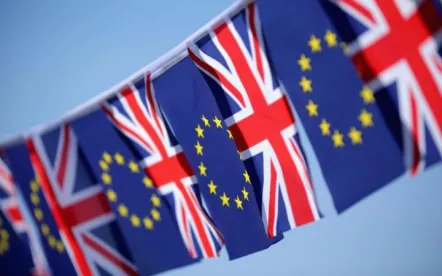From the perspective of the EU27 Theresa May’s Florence Speech does not materially change the current status of the Article 50 Withdrawal Negotiations.
However, there are some take-aways which should be noted:
-
The speech and Michael Barnier’s response made it clear that the UK will leave the EU and cease to be a Member State of the EU on 29 March 2019. From the EU’s perspective the UK is a “Third Country” as of 30 March 2019.
The two year transition period (“Transition Period”) proposed by Theresa May in her speech requires an agreement to be negotiated and entered into between the EU and the UK. Such negotiations need to be concluded and ratified to 30 March 2019.
As of 30 March 2019 all International Agreements, like Free Trade Agreements, Comprehensive Air Transport Agreement, Horizontal Air Transport Agreements, Fishery Agreements, and other agreements (more than 700) the EU has entered into with other countries around the world will not apply to the UK any longer after 29 March 2019, because any Transition Period agreed between the EU and the UK will only apply between the EU and the UK but will not keep alive the UK’s status under the International Agreements of the EU with other countries around the world, unless such other countries agree thereto. This will affect, for example, the US-EU Air Transport Agreement of 2007, the European Common Aviation Area Agreement of 2006, the European Economic Area Agreement with Norway, Liechtenstein and Iceland and the various bilateral agreements the EU has entered into with Switzerland.
-
The UK does not intend to join the European Economic Area after 29 March 2019, thus the freedoms available thereunder, in particular with respect to providing cross-border financial services (“Passports”) will not apply to UK institutions.
-
Theresa May proposes that the UK should stay in the Single Market and the Customs Union during the proposed two year transition period, but she did not say that the UK shall be bound to any rules which the EU adopts after 29 March 2019 during the Transition Period. Theresa May also proposed that the UK shall not be prevented from negotiating Free Trade Agreements with third countries during the Transition Period. It is doubtful whether this will be accepted by the EU.
-
The speech did not recognize the various proposals made by the EU in respect of grandfathering existing trades in goods, customs arrangements, administrative and court proceedings.
-
The speech did not recognize the role and importance which the European Court of Justice places on the competences and rights of the European Court of Justice in respect of International Agreements when it comes to the interpretation thereof in respect of rules stemming from the acquis communautaire. It needs to be seen how any relevant dispute resolution mechanisms implemented for the purpose of the Transition Period would be qualified or rejected by the European Court of Justice when called upon to decide about the constitutionality of the relevant arrangements for the Transition Period. In that respect see our prior blog post.
-
The speech did not address the current negotiations between the UK and the EU and the issues raised by the EU as being required as a prerequisite for making further progress and to finalise Phase 1 of the negotiations, i.e. the negotiation in respect of EU/UK citizens’ rights, the settlement of accounts and the situation of Northern Ireland.




 />i
/>i

